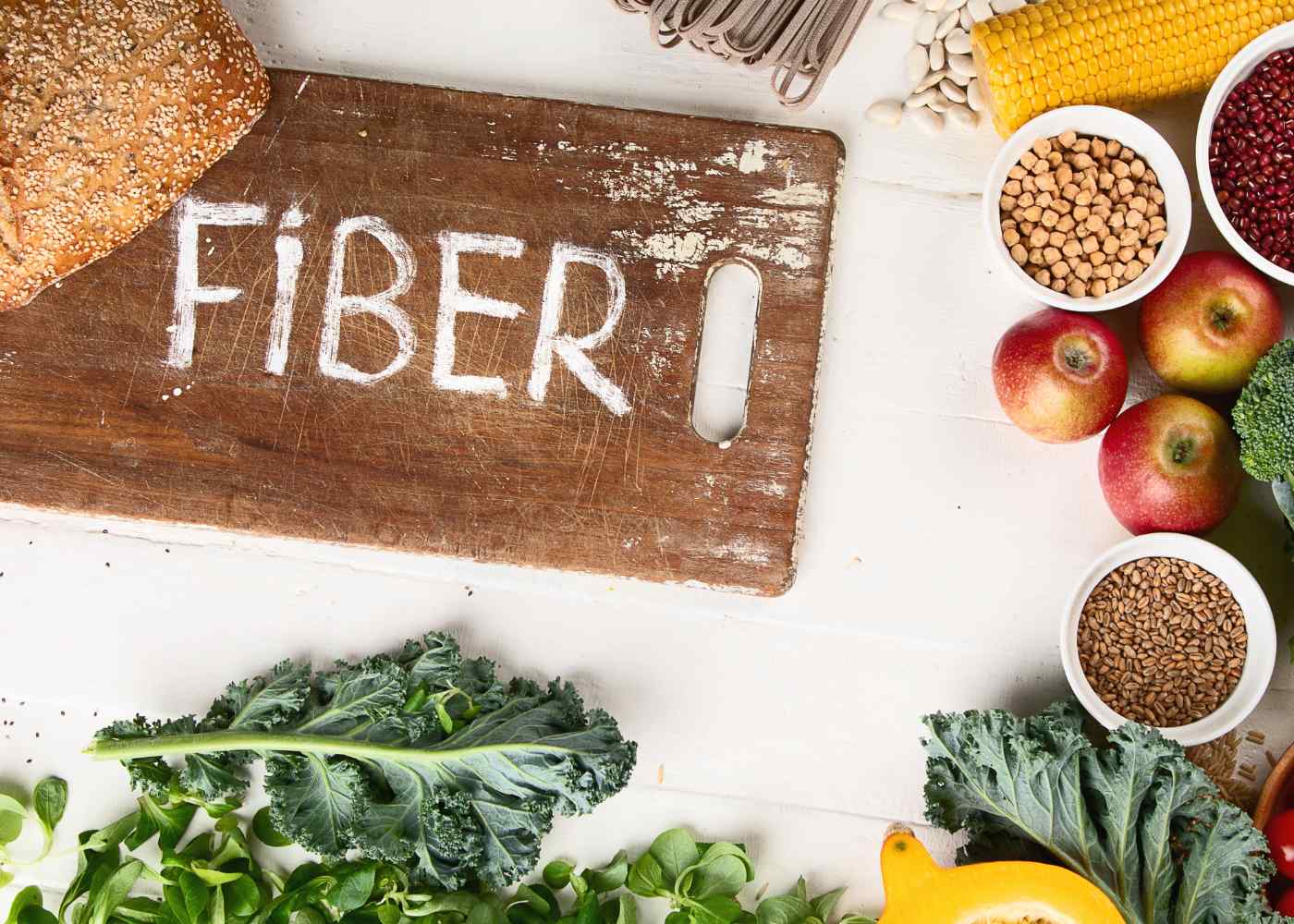
Crafting the perfect energy meal plan tailored to muscle growth is an art and a science. It requires a deep understanding of how different nutrients interact with your body's needs. Among these nutrients, protein stands tall as the cornerstone for muscle repair and growth. Integrating high protein foods for muscle building into your diet can dramatically influence your fitness outcomes. Let's explore how you can balance your energy meal plan with high protein foods to optimize muscle growth.

Understanding the Importance of Protein in Muscle Building
In the quest to enhance muscle mass and strength, protein
emerges as a non-negotiable element in your dietary arsenal. This macronutrient
plays a pivotal role not just in the repair of muscle fibers that endure wear
and tear during workout sessions, but also in the synthesis of new muscle
tissue. Amino acids, the building blocks that constitute protein, are
fundamental to these processes. They act as the raw materials that the body
uses to repair the microscopic tears in muscle fibers caused by intense
physical activity. This repair process is what eventually leads to muscle
growth.
Beyond repair and growth, protein also plays a crucial role
in hormone regulation and the maintenance of other bodily functions that
indirectly support muscle synthesis and overall health. Ensuring an adequate
intake of protein aligns your body’s physiological environment with the demands
of muscle building, enabling a more efficient and effective adaptation to
strength training.
For individuals engaged in regular strength training or any
physically demanding activities, the body's protein requirements are elevated.
Meeting these increased demands through a diet rich in high-quality protein
sources ensures that muscle repair and growth are optimized. This strategic
intake of protein not only supports the physical aspect of muscle building but
also enhances recovery, making your next workout more productive.
In essence, recognizing and acting upon the critical importance of protein in a muscle-building regimen sets the foundation for achieving desired fitness goals. Without sufficient protein, your body lacks the essential components needed for muscle repair, growth, and overall development, underscoring the need for this macronutrient in any effective muscle-building strategy.

The Best Animal-Based High Protein Foods for Muscle Growth
For those embarking on a muscle-building journey,
incorporating animal-based protein sources is essential due to their
completeness and high quality. These foods not only deliver all nine essential
amino acids required for muscle repair and growth but also offer additional
nutritional benefits that plant-based sources might lack. A few standout
choices include:
1. Chicken breast is a staple in the fitness community for
its lean protein content, which aids in muscle repair without the added fats.
Its versatility in cooking methods makes it a favorite among athletes.
2. Salmon is another excellent choice, offering not just
high-quality protein but also a wealth of omega-3 fatty acids. These healthy
fats are crucial for reducing inflammation and supporting overall muscle health.
3. Eggs are unmatched in their amino acid profile, providing
a perfect balance that mirrors the body's needs. They're also rich in vitamin D and B12, which play roles in bone health and energy production.
4. Greek yogurt stands out in the dairy category, providing
not just a high dose of protein but also probiotics that promote gut health.
Its creamy texture and tangy flavor make it an ideal base for smoothies or a
topping for fruits.
Including these animal-based proteins in your diet ensures that your muscle-building efforts are well-supported by nutrition that's both complete and diverse. Remember, while protein is pivotal, it's also important to maintain a balanced diet that includes a variety of other nutrients to support overall health and fitness goals.

Opting for Plant-Based High Protein Foods
Embracing a plant-based lifestyle doesn’t mean sacrificing
protein intake, especially crucial for those focused on muscle building.
There's a rich variety of plant-based proteins that can be seamlessly
integrated into your diet, catering not only to your muscle growth needs but
also offering a breadth of other nutritional benefits.
Lentils and beans stand out as powerhouse options,
delivering not only protein but also essential fiber which supports digestive
health and enhances satiety. Whether it’s black beans, chickpeas, or lentils,
these legumes can be the foundation of numerous meals, from salads to soups,
providing a solid protein boost.
Quinoa, a unique plant-based complete protein, is also an excellent
choice. It’s versatile enough to be used in place of rice, added to salads, or
even incorporated into breakfast dishes, providing a balanced amino acid
profile along with carbohydrates and fiber for sustained energy.
For those exploring soy-based options, tofu and tempeh offer
great versatility and protein content. These can be marinated, grilled, or
sautéed, making them a perfect protein-rich addition to any meal. Their ability
to absorb flavors from spices and marinades makes them a favorite among those
who prioritize both nutrition and taste.
Nuts and seeds, including almonds, chia seeds, and hemp
seeds, are not just protein-rich; they also provide healthy fats and fiber.
These can be added to smoothies, oatmeal, or salads, ensuring you’re getting a
balanced mix of nutrients essential for muscle repair and growth.
Integrating these plant-based proteins into your diet enriches your meal plan with not only the necessary protein for muscle building but also a variety of other nutrients crucial for overall health and well-being.

Incorporating High Protein Foods into Your Energy Meal Plan
Achieving an energy meal plan that effectively supports
muscle growth involves a strategic approach to incorporating high protein
foods. It’s essential to distribute your protein intake evenly throughout the
day to maintain a constant stream of amino acids to the muscles, facilitating
ongoing repair and growth. Breakfast is a prime opportunity to kickstart your
day with a protein-rich meal, setting the tone for sustained energy and muscle
support. Think beyond the typical eggs and consider adding Greek yogurt with
nuts or a protein smoothie to your morning routine.
Midday meals and evening dinners should equally prioritize
protein, with lean meats, fish, or plant-based alternatives serving as the
centerpiece of your plate. Accompany these with complex carbohydrates like
sweet potatoes or quinoa and a variety of vegetables to ensure a well-rounded
meal that supports muscle health and energy levels.
Snacking shouldn’t be overlooked either; opting for
protein-packed snacks can keep hunger at bay and provide a quick energy boost
between meals. Cottage cheese, hard-boiled eggs, or a handful of almonds can be
perfect for these moments.
Timing also plays a crucial role, particularly around your
workout sessions. Consuming a protein-rich snack or meal post-exercise can
significantly impact your muscle recovery and growth. This is when your body is
most receptive to nutrients, and providing it with the necessary protein can
accelerate repair processes.
By thoughtfully planning your meals and snacks to include a variety of high protein foods, you can ensure your diet aligns with your muscle growth and energy goals. This balanced approach not only fuels your workouts but also aids in the efficient recovery and strengthening of your muscles.

The Role of Supplements in Muscle Building
In the realm of muscle building, supplements often find
their place as an adjunct to a diet rich in whole foods. While the foundation
of any muscle growth plan should be built upon a variety of nutrient-dense
foods, there are instances where supplements can offer a convenient and
efficient way to fill any nutritional gaps. Whey protein is a prime example,
revered for its high-quality protein that is easily absorbed and utilized by
the body, making it particularly beneficial post-workout. At this critical
time, your muscles are akin to a sponge, eager to soak up nutrients to
kickstart the recovery process.
Another supplement category, BCAAs, or branched-chain amino
acids, focuses specifically on leucine, isoleucine, and valine. These essential
amino acids play a direct role in protein synthesis and muscle repair, offering
an additional layer of support to the muscle recovery phase.
It's also worth noting the potential role of other
supplements such as creatine, known for its ability to enhance performance and
muscle growth by increasing the availability of ATP, the energy currency of
cells.
However, navigating the world of supplements requires a judicious approach. The convenience and benefits they offer must be weighed against the need for a varied and balanced diet. Supplements should never overshadow the primary role of whole foods but rather serve to complement your nutritional intake, ensuring that your body receives all it requires to not only build but sustain muscle growth over time.

Common Mistakes to Avoid in Your High Protein Muscle Building Diet
Navigating the path to optimizing your muscle-building diet
requires more than just ramping up your protein intake. A well-intentioned
focus on high protein foods for muscle building can inadvertently lead to
nutritional missteps if not carefully balanced. One prevalent error is the
disproportionate emphasis on protein while neglecting the essential role of
carbohydrates and fats. These macronutrients are critical for providing the
energy necessary for workouts and daily activities, as well as for supporting
overall health. Overlooking them can impair workout performance and recovery,
stalling muscle growth progress.
Another oversight is the failure to diversify protein
sources. Relying too heavily on a narrow range of foods can lead to nutritional
deficiencies and palate fatigue, which may undermine adherence to your meal
plan. It's crucial to explore a variety of protein-rich foods, both animal and
plant-based, to ensure a broad spectrum of nutrients and to keep meals
interesting.
Additionally, some individuals may mistakenly believe that
more protein always translates to more muscle, leading them to consume protein
over their body's needs. This approach not only places unnecessary
strain on the kidneys and liver but also can result in body fat gain, as excess
calories from any source are stored as fat.
Finally, overlooking the importance of meal timing,
particularly around workouts, can diminish the effectiveness of your
muscle-building efforts. Consuming a balanced meal or snack with protein and
carbohydrates before and after exercise can significantly enhance muscle
repair, recovery, and growth.
By steering clear of these common pitfalls and adopting a well-rounded approach to nutrition, you can more effectively harness the muscle-building power of protein while supporting your overall health and fitness goals.

Listening to Your Body for Optimal Muscle Growth
Navigating the path to maximizing muscle growth extends
beyond meticulous meal planning and regular training; it involves cultivating
an acute awareness of your body's reactions and requirements. Each individual's
response to dietary changes, workout intensities, and recovery needs can vastly
differ, making personal observation and adaptation key components of a
successful muscle-building strategy. Recognizing signs of fatigue,
understanding hunger cues, and identifying preferences for certain foods over
others are all critical in tailoring your diet and exercise regimen to your
body's specific needs.
Engagement with your body's feedback loop enables you to
fine-tune your protein intake, adjust meal sizes, and optimize meal timing for
peak performance and recovery. For instance, if you notice persistent soreness
or sluggish recovery times, this may signal the need for increased protein-rich
foods post-workout or perhaps more rest days in your training schedule.
Conversely, feeling consistently energized and experiencing visible muscle
growth can indicate that your current regimen is well-aligned with your body’s
demands.
Moreover, the significance of monitoring hydration levels,
ensuring quality sleep, and managing stress cannot be overstressed. Each of
these factors plays a crucial role in how effectively your body repairs and
builds muscle. Dehydration, sleep deprivation, and high stress can all
undermine your efforts, regardless of how optimized your meal plan may be.
Ultimately, achieving optimal muscle growth is a holistic endeavor that hinges on listening to and respecting your body's signals. By staying attuned to these cues and making necessary adjustments, you align your practices with your body’s unique rhythm, paving the way for sustained muscle development and overall well-being.

Conclusion
Navigating the complex journey of muscle building demands a
strategic approach to nutrition, with a particular emphasis on incorporating a
wide array of high protein foods into your diet. The role of these foods goes
beyond just supplying your muscles with the necessary building blocks; it's
about creating a nutritional foundation that fosters sustained growth,
recovery, and energy levels. Achieving this balance involves more than just
meeting daily protein targets—it's about understanding the timing of
consumption, the diversity of your protein sources, and how these factors
interplay with your body's unique demands.
Crafting an energy meal plan that effectively supports your
muscle-building goals is iterative. It might require
adjustments and fine-tuning as you progress, based on your body's feedback and
changing needs. This adaptive approach ensures that your nutrition strategy
evolves in tandem with your fitness journey, optimizing results while
prioritizing health.
Incorporating a mix of both animal-based and plant-based
proteins ensures a comprehensive nutrient intake, providing not just the
essentials for muscle repair and growth but also supporting overall
physiological well-being. Additionally, the strategic use of supplements can
complement your diet, filling any gaps and aiding in recovery, especially
post-workout.
The ultimate aim is to foster a symbiotic relationship
between your diet and your workout regimen, where each element reinforces the
other. This holistic approach underscores the importance of patience,
consistency, and attentiveness to your body's signals, guiding you toward
achieving your muscle-building objectives with vitality and strength.




















